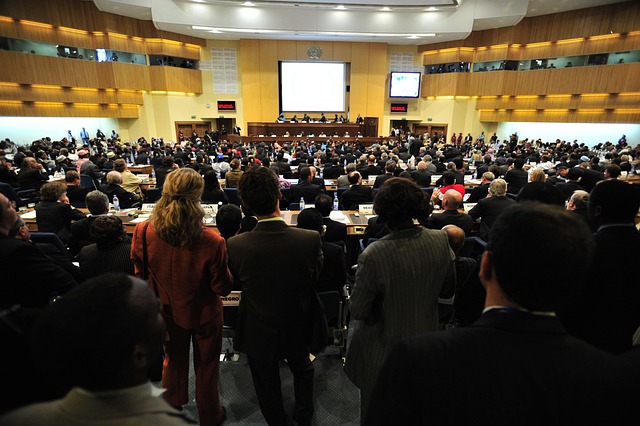Corporate events offer exceptional opportunities for networking, brand promotion, and achieving business objectives. Planning and executing these events can come with significant financial risks. Identifying common mistakes can help mitigate financial losses and guarantee your event’s success. This article highlights some financial missteps and how to avoid them.
Underestimating Budget Needs
One of the most common pitfalls in organizing a corporate event is underestimating the budget. Many event planners overlook several key factors, such as venue costs, catering, A/V equipment, and staff expenses. Ignoring these elements can result in a budget shortfall, compromising the quality of the event.
When preparing a budget, it’s important to take a comprehensive approach. Consult with different departments to get a clear understanding of expectations.
Incorporating all possible expenditures is important, including signage, transportation, and event insurance. It’s advisable to set aside at least 15% of the total budget as a contingency fund. This safety net can help cover unforeseen costs or changes that arise during the planning process.
Neglecting Marketing Opportunities
Many event organizers make the mistake of overlooking marketing for their corporate events. Adequate promotion is important to attract attendees.
Without effective advertising, the event might fail to reach potential participants and generate revenue.
Utilizing various channels, such as email newsletters, social media, and industry publications, can improve visibility. Partner with well-known figureheads or professionals to amplify your reach.
Inviting industry leaders as speakers can pique interest and drive attendance. If you secure well-respected speakers such as JLA keynote speakers, attendees will likely perceive the value of your event more favorably. Failing to have a tailored marketing strategy can result in fewer participants, lower engagement, and less financial return on investment.
Consistent branding across all marketing materials helps establish credibility and recognition. Creating early-bird offers or referral discounts can incentivize attendance and build momentum ahead of the event.
Tracking engagement metrics, such as clicks, shares, and registrations, can help organizers assess which platforms are most effective.
Building partnerships with media outlets or sponsors can further expand the event’s reach. Successful event marketing guarantees higher attendance and a stronger, lasting impression on participants.
Choosing the Wrong Venue
The venue selection process significantly impacts your event’s success and finances. A location that seems affordable at first may lead to hidden costs that escalate the expenditure. Event spaces might charge extra for amenities like Wi-Fi, parking, or technical support.
Evaluate venues based on their initial pricing and think about the experience they provide to attendees.
Doing comprehensive research can help identify venues that offer the best value for money. Guaranteeing that the venue aligns with your event’s theme and target audience is critical. A mismatched venue can deter potential attendees and negatively affect attendance rates.
Accessibility should be a major point to think about. Venues located near public transportation or hotels tend to attract more participants. Think about the size of the space to guarantee it comfortably accommodates your expected number of guests without feeling overcrowded or empty.
Visiting the venue beforehand allows you to assess its facilities, layout, and atmosphere. It’s wise to inquire about cancellation policies or insurance options to avoid unforeseen complications. Taking these steps helps guarantee a seamless experience for both organizers and attendees.
Ignoring Logistics
Logistics play a role in the financial aspect of any corporate event. Overlooking this area can escalate costs and create unnecessary complications. Poor coordination with vendors for catering, transportation, and equipment can lead to extra charges and delays.
Plan logistics meticulously by creating detailed schedules and operation plans. Make it a priority to communicate effectively with vendors and establish timelines that include delivery and setup times.
Regular follow-ups can help guarantee vendors meet their commitments, preventing any last-minute issues from arising.
Failing to Evaluate Return on Investment
A common financial mistake is not assessing the return on investment (ROI) after an event. Understanding what was achieved against the expenditures can inform future planning and budgeting decisions. Without this evaluation, you may continue repeating ineffective strategies.
Set clear objectives and key performance indicators (KPIs) before the event takes place. Post-event analysis should focus on metrics like attendee feedback, lead generation, sponsorship success, and engagement. Use this data to adjust your approach for future events, guaranteeing your investment yields maximum benefits.
Overlooking Payment Terms
Payment terms can often be a source of financial strife for event planners. Many organizers fail to read the fine print or neglect to negotiate favorable terms with vendors and service providers. This can lead to cash flow issues or unexpected penalties down the line.
It’s important to clarify and negotiate payment schedules before contracts are signed. Understand the refund policies in case of cancellations or changes.
Being proactive can secure your financial position and allow for greater flexibility as circumstances evolve.
Anticipating challenges and understanding where to allocate resources are critical in organizing a successful event. By avoiding these common financial mistakes, you can steer your corporate event towards success without overspending.




Leave a Reply